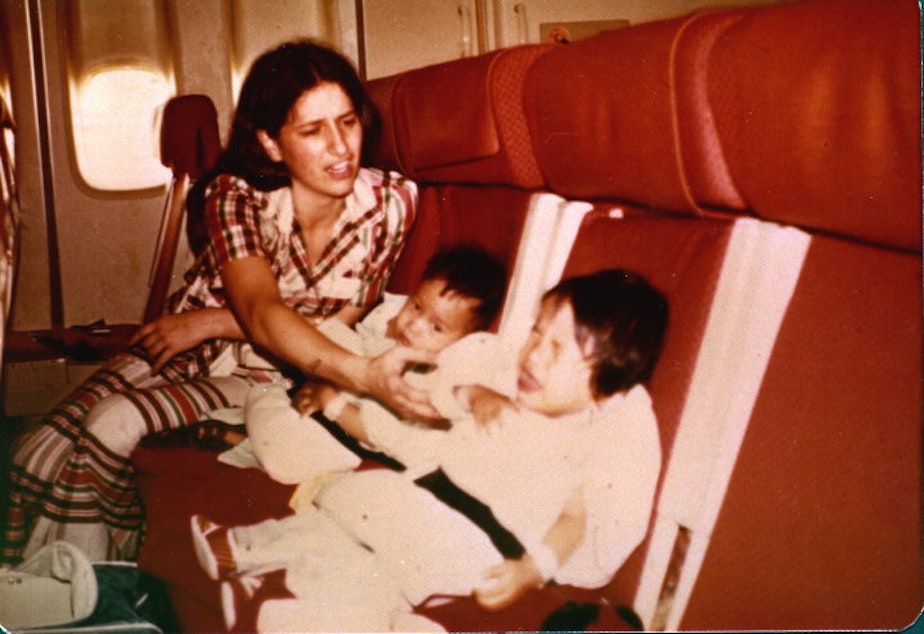Mixed Legacy: The US Airlift Of Vietnamese Babies

Jeannie Yandel talked with historian Jeremi Suri about Operation Babylift, the U.S. government's program to airlift as many South Vietnamese babies -- orphans in addition to other babies -- out of South Vietnam as possible before the North Vietnamese troops arrived.
How did families in South Vietnamese families respond to Operation Babylift?
This is one of the hardest parts of studying this terrible war.
There were some families that were incredibly grateful. The last thing they wanted was for their children to grow up in the shadow of the war in South Vietnam.
There were other families that of course didn’t want to lose their children. Even if the parents had died, they were still a part of this historical Vietnamese cultural and historical fabric, and this was a very sad thing for them.
Sponsored
And then there were some children for whom there were no families left. You don’t even know who to ask or who to have rightful authority over them because as their families were collapsing the government of South Vietnam was collapsing.
You had very mixed reactions. The children who have survived carry those mixed reactions with them.
What was the response from North Vietnam – the U.S. literally taking babies?
They viewed the taking of children and anyone else being liberated in our terms was being stolen from South Vietnam.
What comes through to me is the North Vietnamese didn’t care about these children. It was more of an embarrassment for them … and in many cases viewed them as children of the enemy.
Sponsored
They would have been subject to some pretty harsh treatment if they had been left.

